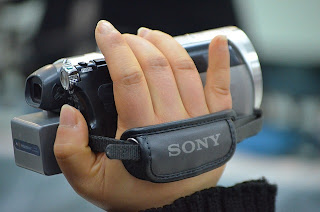First: the Rule of Thirds!
Second: the 180 Rule!
Students will take their collected video, photos, fx and audio into post-production soon! Watch for updates!
 |
| CC 0.0 (public domain) Photo from Pixabay! |
 Digital Literacies students will be building a repertoire of basic camera shots and angles in preparation to shoot some "B-roll" in the field. Students will review the Basic Shots and Angles worksheet.
Digital Literacies students will be building a repertoire of basic camera shots and angles in preparation to shoot some "B-roll" in the field. Students will review the Basic Shots and Angles worksheet.